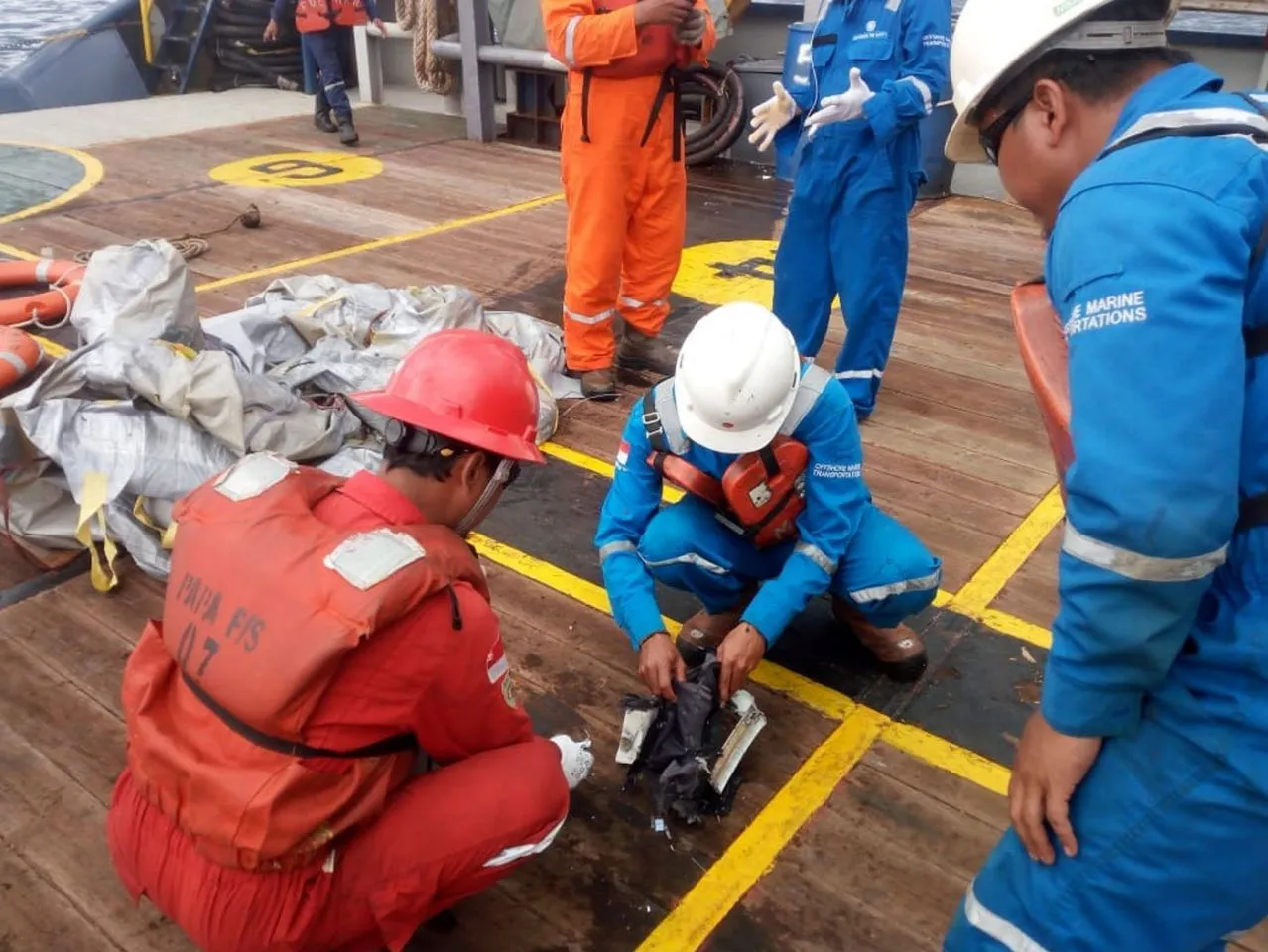
Lion Air funds new search for cockpit voice recorder
Dec 14, 2018

Lion Air has allocated significant funds to initiate a new search for the cockpit voice recorder of its ill-fated flight, which tragically crashed in 2018. This decision comes as part of the airline's commitment to uncover the full circumstances surrounding the accident, which claimed the lives of all 189 passengers and crew on board. The renewed effort aims to locate the crucial device, believed to hold vital information that could provide insights into the events leading up to the crash. By investing in this search, Lion Air hopes to enhance aviation safety and restore public confidence in air travel.
Lion Air's Efforts to Find the Cockpit Voice Recorder
The tragic crash of Lion Air Flight JT610 in October 2018 led to an extensive search for the cockpit voice recorder (CVR) and flight data recorder (FDR). After years of investigation and analysis, Lion Air has announced a new funding initiative to support a renewed search for the CVR. This decision underscores the airline's commitment to uncovering the full circumstances surrounding the crash.
The Importance of the Cockpit Voice Recorder
The cockpit voice recorder is a pivotal component in aviation safety investigations. It records the sounds in the cockpit, including conversations between the pilots and any alarms or sounds that may indicate a problem with the aircraft. The data retrieved from the CVR can provide critical insights into the pilots' decision-making processes and any mechanical issues that may have contributed to the accident.
Funding the New Search
Lion Air has pledged a significant amount of funding for the new search efforts, which will be conducted in collaboration with experienced recovery teams and aviation experts. This funding is crucial for deploying advanced technology and equipment necessary for locating the CVR, which was not found during the initial search.
Search Operations and Technology
The new search operations will utilize state-of-the-art technology, including:
| Technology | Description |
|---|---|
| Sonar Systems | High-resolution sonar systems will be deployed to scan the ocean floor for the CVR. |
| Remote Operated Vehicles (ROVs) | ROVs will assist in navigating difficult underwater terrain and retrieving the CVR. |
| Data Analysis Software | Advanced software will analyze the data collected from sonar and ROVs to identify potential locations of the CVR. |
Previous Search Efforts
The first search for Lion Air Flight JT610's CVR was launched shortly after the crash, with efforts focusing on the Java Sea. Despite extensive operations involving multiple vessels and underwater drones, the CVR remained elusive. The lack of success in the initial search prompted Lion Air to re-evaluate its approach, leading to the current funding initiative.
Impact on Aviation Safety
Recovering the CVR is not just about resolving the specifics of the Lion Air crash; it has broader implications for aviation safety. By analyzing the data from the CVR, regulatory bodies and airlines can identify systemic issues and implement changes to prevent future accidents. This is a vital aspect of maintaining public confidence in air travel.
Collaboration with Aviation Authorities
Lion Air's new search initiative will involve collaboration with national and international aviation authorities. These partnerships are essential for ensuring that the search is conducted in accordance with best practices and that the findings contribute to the global aviation safety database.
Community and Family Impact
The families of the victims of Lion Air Flight JT610 have been vocal in their desire for answers regarding the crash. The renewed search for the CVR is a step towards providing closure for these families and honoring the memory of their loved ones. Lion Air’s commitment to funding this search demonstrates a recognition of the emotional and social ramifications of aviation accidents.
Future of Lion Air
As Lion Air moves forward with its renewed search efforts, the airline aims to rebuild its reputation and restore public trust. Ensuring safety and transparency in operations will be paramount. Lion Air's ongoing commitment to aviation safety will be reflected in its operational practices and customer service initiatives.
Conclusion
The renewed search for the cockpit voice recorder of Lion Air Flight JT610 represents a critical chapter in the airline's journey towards accountability and safety. By investing in advanced technology and collaborating with aviation experts, Lion Air is taking significant steps to uncover the truth about the crash. This search not only aims to provide answers for the victims' families but also to enhance overall aviation safety for the future.
```Related Articles

Explore Thailand: The Best Islands to Visit for Paradise, Adventure, and Relaxation

The Ultimate Guide to the Best Islands in Thailand for Your Next Getaway

Do babies need passports? How to get a passport for a newborn

How to get a U.S. passport fast: here’s how to expedite the process

What is Mobile Passport Control: 5 reasons why you should use it

SENTRI vs. Global Entry: A detailed guide

Do you need a passport to go to the Bahamas? Let’s find out

Do you need a passport to go to Mexico? A detailed guide

Do you need a passport to go to Canada? We got the answer

Do You Need a Passport for a Cruise: An Essential Travel Guide

Booster Seat Requirements: All the Rules to Follow in Your Rental Car

What Are the World’s Most Powerful Passports, and How Does Yours Rank?

How to Take a Passport Photo at Home: A Helpful Guide

You've got to have heart! Southwest's new livery

Your opinion: Should water be free on low cost carriers?

Young women bolder than guys as solo travellers
